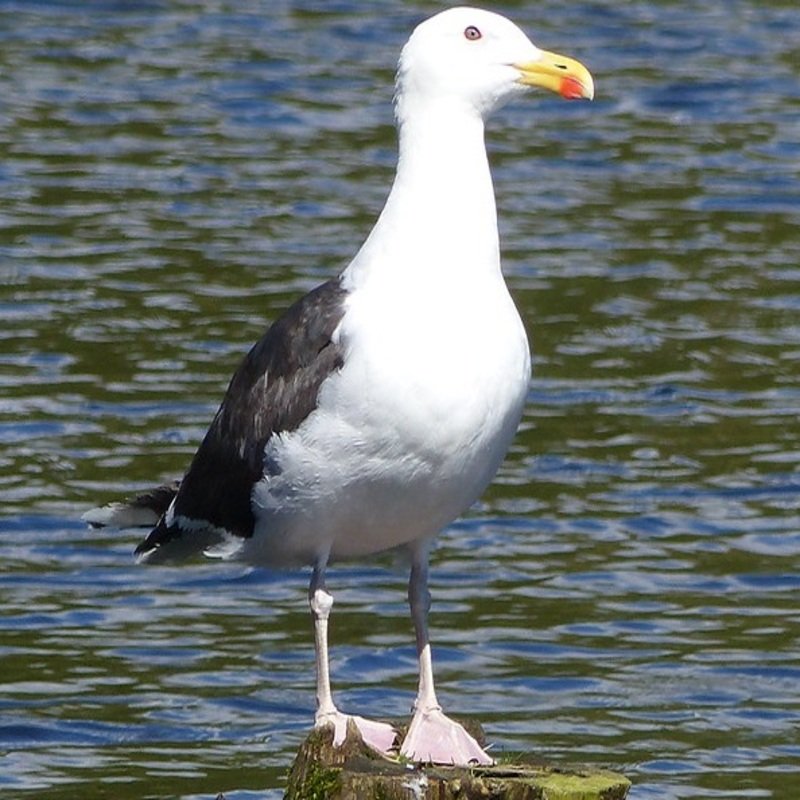The great black-backed gull (Larus marinus) is the gull family’s largest member. The Cornell Lab of Ornithology refers to it as “the king of the Atlantic waterfront” due to its aggressive nature as a hunter, pirate, and scavenger. It breeds around the European and North American shores and islands of the North Atlantic and is a rather stationary species, however occasional individuals migrate further south or inland to major lakes or reservoirs.
Quick Overview: Larus Marinus – Great Black-Backed Gull
Body size: Around 25-31 in (64-79 cm) and a weight of 1814 g (64 oz)
Main colors: White, Black, Red, Pink, Yellow
Range: Eastern United States
Migratory Bird: Yes
Best time of the year to see in the U.S.: January, February, December
Conservation Status: Least Concern
Great black-backed Gull Description
The largest gull in the world. Whitehead, black upperparts, and white underparts; huge yellow bill with a red patch on the lower mandible; pale-eyed with a red orbital ring; pink legs and feet.

Size
These birds have a length of 25-31 in (64-79 cm) and a weight of 1814 g (64 oz). Their wings could range from 60-65 in (152-165 cm).
Feeding
Omnivorous. Carrion, fish, mollusks, crustaceans, marine worms, insects, rodents, and berries are all part of the diet, as are the adults, young, and eggs of other birds.
Habitat
The great black-backed gull inhabits a variety of coastal environments, including rocky and sandy beaches and estuaries, as well as inland wetland habitats, including lakes, ponds, rivers, wet fields, and moorland. While they range inland, they are often found within striking distance of major bodies of water.
Behavior
The Cornell Lab of Ornithology refers to it as “the king of the Atlantic waterfront” due to its aggressive nature as a hunter, pirate, and scavenger.
Larus Marinus Scientific Classification
- Kingdom: Animalia
- Phylum: Chordata
- Subphylum: Chelicerata
- Class: Aves
- Order: Chordata
- Family: Laridae
- Genus: Larus
- Species: Larus marinus
Best time of the year to see
The best time to see these birds in the United States is during the winter season (December to February).
Distribution of the Great black-backed Gull owl in the USA
Breeds in northeastern North America between North Carolina and Newfoundland and Labrador, as well as on Greenland’s west coast. Summers are spent further south along the Atlantic Coast, in Florida, and occasionally inland to the Great Plains. Additionally, it is prevalent across northwestern Europe.
The Great black-backed Gull can be found in the following states in the United States – Delaware, Maryland, Kentucky, Tennessee, Virginia, West Virginia, South Carolina, Georgia, Alabama, Mississippi, Wisconsin, Minnesota, Nebraska, Colorado, Texas, Kansas, and Oklahoma.

